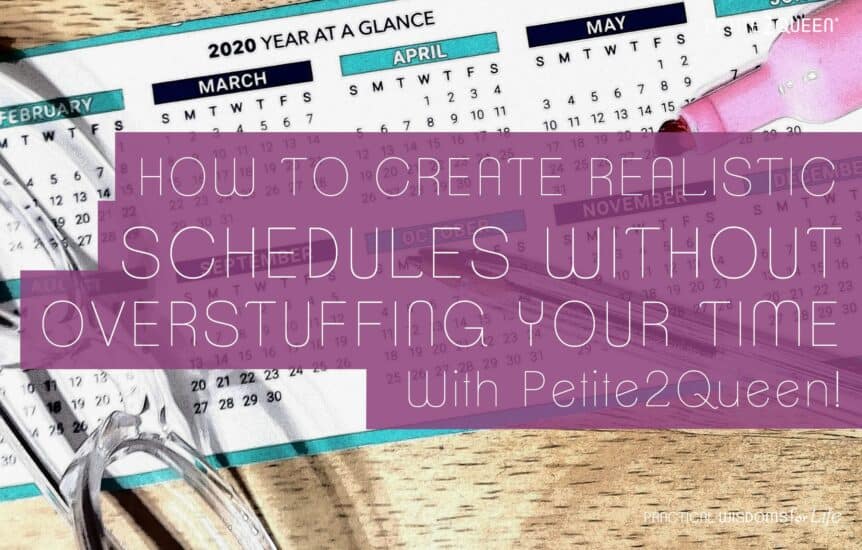We’re nearly a month into the new year, and many of us have already added our resolutions and goals into our schedules… and promptly found that we’ve overstuffed our calendars. If you ever feel the strain of trying to squeeze in too much each day, you might wonder how you can finally make a schedule that works for you. How can you achieve your goals, yet also create realistic schedules for yourself? Amanda and Rachel, along with Lynn, share their tips in our new podcast.
Find out how you can create realistic schedules by watching our podcast below:
For many, the beginning of each year is a time filled with ambition and excitement at what you can accomplish. Unsurprisingly, though, those new activities can have a huge impact on your schedule. We lead busy lives, and adding new hobbies and tasks to an already-full schedule doesn’t always work out so well. So how can we feed our creative and curious minds, while also balancing for work, chores, and quality time with family and friends?
We talk about what pushes us to overstuff our calendars. It’s not just that we’re bad at time management or can’t narrow our interests enough. A lot of it comes down to simply being overworked. Long hours on the job plus commuting and chores, not to mention sudden emergencies, can eat up nearly every second of your day. We’re also a society obsessed with being productive, meaning it’s hard for us to wind down.
So how can we make realistic schedules that will last? Amanda and Rachel share their tips here, from managing expectations to overestimating how long different tasks will take.
From a wider perspective, these issues of being busy and our collective aims to be productive all the time come from a greater societal structure. Indeed, our social and economic systems play a major role in all of this.
Rachel describes how our days have been divided for the last century — 8 hours for work, 8 hours for sleep, and 8 hours for fun — but also how that last chunk isn’t actually as relaxing as we’d like. Those 8 hours of fun usually go to commuting, making dinner, cleaning up, handling household needs like bills and repairs, and childcare. Where’s the time for enriching hobbies or learning or quality socializing? As a form of self-soothing, we often end up spending money. We buy things that make us feel happy or pay for services so we aren’t so burdened.
Amanda talks about how capitalism has instilled in us a devotion to productivity and always keeping busy. From the time we’re in elementary school, our days are filled with activities, and it only worsens with age. Our leisure time ends up not being all that leisurely.
Luckily, there are paths forward. Amanda and Rachel both describe what people can do as a community to end this vicious cycle. From open communication to political activism to unionizing, there are many steps we can take to make our time work better for us. Ultimately, that will help us all in making realistic schedules.
Listen to our podcast below to hear about ways to making schedules more realistic and achievable, regardless of society’s constraints.
What tips do you have for keeping your schedules realistic and achievable? Let us know in the comments!

Petite2Queen is a virtual mentoring community for women who want more out of life and their careers. We are women who have been there, done that… and women who are in it with you. Our virtual mentoring series, podcasts, blogs, and more provide real-life learning, insights, and transferrable skills. Create your own amazing life!

